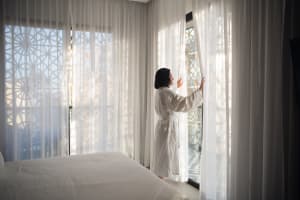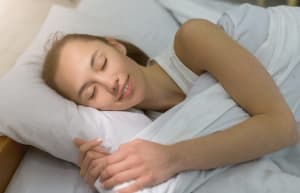
It’s that time of year again: daylight saving time. Or is it daylight “savings” time? Whatever you call it (it’s actually daylight saving, with no “s”), it’s here and for lots of people, it’s hard to remember whether you’ll be gaining an hour or losing one when daylight saving begins on Sunday. Spoiler alert: you’ll be losing an hour, sadly.
Just when you thought you’d made it through all of Winter’s treachery, the final transition into Spring has one more miserable trick up its sleeve. At 3 AM on March 14th, 2021, we officially ‘spring forward,’ meaning the sun rises and sets about an hour later.
As opposed to ‘falling back’, when conventional wisdom says we gain an hour of sleep, most people dread the upcoming change because we theoretically lose an hour of sleep. Adding insult to injury, this hour is shaved off of a Sunday—leaving many people disoriented and sleep-deprived on one of the few respites they have from the grind of the workweek.
In fact, with a little bit of planning, you can avoid any of the sleep-related pitfalls of this time change. All it takes is a little understanding of how the body regulates sleep, and a willingness to preemptively adjust your schedule just a little. Read on to learn about how daylight affects the way we slumber, and what you can do to avoid the daylights savings blues!
Circadian Rhythm Regulates our Sleep Cycle
Our body tethers our sleep to the day and night cycle by way of the Circadian System, a complex series of sensory receptors and bio-feedback loops that link us to the coming and going of the sun. Our article describes in more detail, though, all you need to know is that we become alert in the presence of sunlight, and grow sleepy when it goes away.

This becomes important when you think about what happens when we gain or lose an hour of sunlight. The truth is that you can still sleep as little or as much as you want during these changes—all that really changes is our bodies’ expectations of when the sun comes up and sets. When people say you lose or gain an hour, all they mean is that the clock resets to match this natural shift, and our bodies do not.
Some people claim to be very disoriented by this shift, while others say they hardly notice it at all. It is true that we naturally adjust to that change in light, whether we are conscious of it or not. When the light comes earlier, the circadian system reacts by flooding our body with chemicals that stimulate alertness. Since this cycle is always attuned to the typical 12 hour day, chemicals promoting sleep will be released an hour earlier as well.
Daylight Savings Affects us Like Jet Lag
We face the same disorientation to our internal clocks when we experience jet lag. When your body is adjusted to seeing the sun at a particular time, giving it signals that contradict that routine makes us feel tired when we should be alert, and alert when we should be tired. Learn more about how to combat the symptoms of jet lag.
When it comes to jet lag, people may have to take more drastic measures. Because of the rather large discrepancies that traveling huge distances causes between our external environment and internal clock. Many sleep experts suggest adjusting your sleep schedule days before travel or taking melatonin, a popular over-the-counter drug, to help the body reset its internal clock. These are both two methods that certainly work, but are more serious than you need for a simple one-hour time shift.
Adjust to Daylight Savings With Some Simple Tips and Tricks
Here are some things we recommend to make sure the time shift won’t upset your sleep:
Try to get to bed a bit earlier in the days before the change:
When we spring forward, the sun takes a bit longer to appear in the sky. That means that our body will simply want to get up later in the morning. You can help yourself adjust a bit quicker to this change if you try to get to bed a little earlier than you normally would in the nights before the shift happens.
Even 15 to twenty 20 minutes can help offset the cycle in the right direction. The Cleveland Clinic recommends trying to get to bed 15 minutes earlier three days out, 30 minutes earlier two days out, and 45 minutes to an hour earlier the night before the shift.
Use light to your advantage:
If the sun comes up later in the morning, your body will naturally avoid waking up to try and match this. So, if you’re able to, we recommend sleeping with your blinds open so that you get exposed to the sun as soon as it comes up. If you don’t have a good window for this, there are several ways you can use technology to mimic the natural light of the rising sun.
Use artificial light to get your body stimulated at the right time for the first few days after daylight savings. Your body will easily adjust within a week or so.

Avoid napping, at least for the first few days after the change:
Some people get themselves up on time despite the dark skies, only to find that they are especially tired by the early afternoon. Usually, we are all for napping, but in this case, it can work against you. If you give in and nap, you might find that it is very difficult to get into a deep sleep at the right time later that evening. Worse than that, you will find it very hard to wake up on time the next day.
All of this leads to a cycle where you are still trying to stay on the previous time schedule.
Instead of napping, try having a small amount of caffeine. Light green tea is a good choice, as is decaf coffee. But be careful not to overdo it!
Leave a Reply